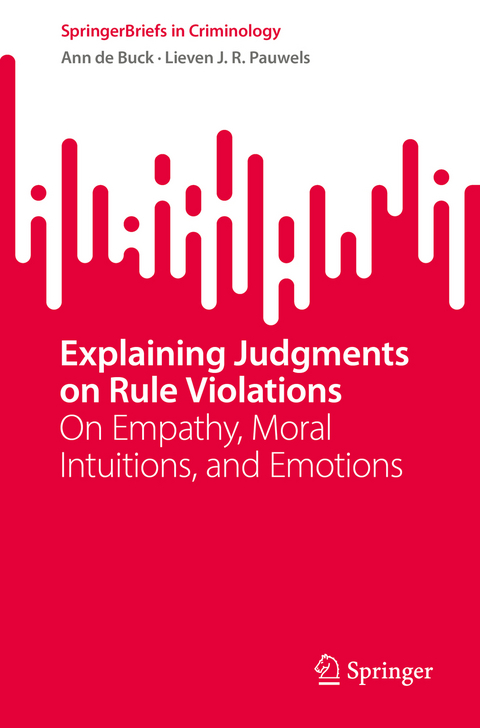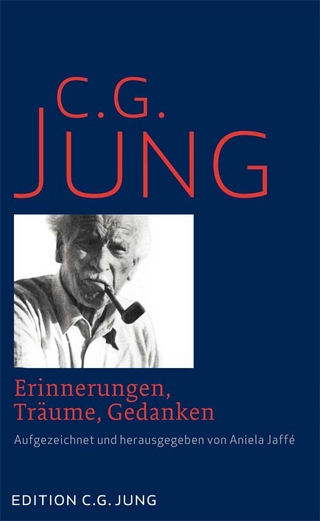
Explaining Judgments on Rule Violations
Springer International Publishing (Verlag)
978-3-031-13868-3 (ISBN)
Ann De Buck is PhD candidate and academic assistant in Criminology (since 2016) at Ghent University, Faculty of Law and Criminology. She is currently working on a doctoral research project, under the supervision of prof. dr. Lieven Pauwels, entitled “Moral emotions and moral cognitions in context: rule breaking as failure to cooperate”. Her fields of interest are interdisciplinary theory-testing research, rule-breaking decision strategies, juvenile delinquency, and morality. She has written articles in English and Dutch peer-reviewed journals, such as the Journal of Community Psychology, the European Journal of Criminal Policy and Research, the Journal of Contemporary Criminal Justice, Monatsschrift für Kriminologie und Strafrechtsreform, Psychometrica Belgica, the European Journal of Criminology, Panopticon. She aims to finalize her doctoral research project by the end of 2022. Lieven J. R. Pauwels (°1974) is Professor of Criminology (since 2007) at Ghent University, Faculty of Law and Criminology. He is Co-Director of the Institute for Criminal Policy and Research (IRCP). He has been conducting theory-testing research for the past 18 years. He has written over 200 peer-reviewed articles and book chapters. He is the author of widely usedtextbooks (in Dutch) on theories of crime causation and quantitative methods for criminologists. His fields of interest are interdisciplinary theoretical integration, the explanation of prosocial and antisocial behavioral strategies, person-environment interactions, rule-breaking decision strategies, juvenile delinquency, and violent extremism.
List of tables and figures 5.- Chapter ONE: Introduction and aim of the study 7.- Introduction 8 Aim of the present study 10.- References 14.- Chapter TWO: An evolutionary inspired integrated model: From empathy to moral judgment 21.- Introduction 21.- Moral judgments 22.- An evolutionary inspired perspective 24.- Four distinct moral violations 26.- Theft by taking 27.- Breaking a fairness rule (breaking a promise) 28.- Punishing a free-rider 28.- Consensual adult sibling incest 29.- Distal and proximal variables 31.- Distal variables 32.- Proximal variables 41.- Integrated model of moral antecedents to moral judgment 47.- The relationships between empathy and moral intuitions 49.- The relationships between moral intuitions, moral emotion, and moral judgment 50.- References 53.- Chapter THREE: Data and methodology 61.- Participants 61.- Written scenarios 62.- Diagrams of the scenarios 63.- Measures of the key concepts 68.- Distal variables 68.- Proximal variables 70.- Endogenous variables 70.- Analytic strategy 71.- Measurement part of the model 72.- Structural part of the model 75.- References 77.- Chapter FOUR: Results 79.- Structural part of the model 79.- Scenario_1: Theft by taking 81.- Scenario_2: Breaking a promise (breaking a fairness rule) 83.- Scenario_3: Punishing a free-rider 85.- Scenario_4: Consensual adult sibling incest 87.- Summary of the major findings 89.- Chapter FIVE: Discussion and future research 91.- Introduction 91.- Strengths, limitations and future directions 93.- Conclusion 97.- References 99.- APPENDICES 102.
| Erscheinungsdatum | 25.11.2022 |
|---|---|
| Reihe/Serie | SpringerBriefs in Criminology |
| Zusatzinfo | IX, 77 p. 15 illus. |
| Verlagsort | Cham |
| Sprache | englisch |
| Maße | 155 x 235 mm |
| Gewicht | 147 g |
| Themenwelt | Geisteswissenschaften ► Psychologie ► Psychoanalyse / Tiefenpsychologie |
| Geisteswissenschaften ► Psychologie ► Sozialpsychologie | |
| Medizin / Pharmazie ► Medizinische Fachgebiete ► Psychiatrie / Psychotherapie | |
| Recht / Steuern ► Strafrecht ► Kriminologie | |
| Schlagworte | Empathy • moral emotions • moral foundations theory • moral judgement • scenario design |
| ISBN-10 | 3-031-13868-6 / 3031138686 |
| ISBN-13 | 978-3-031-13868-3 / 9783031138683 |
| Zustand | Neuware |
| Haben Sie eine Frage zum Produkt? |
aus dem Bereich


